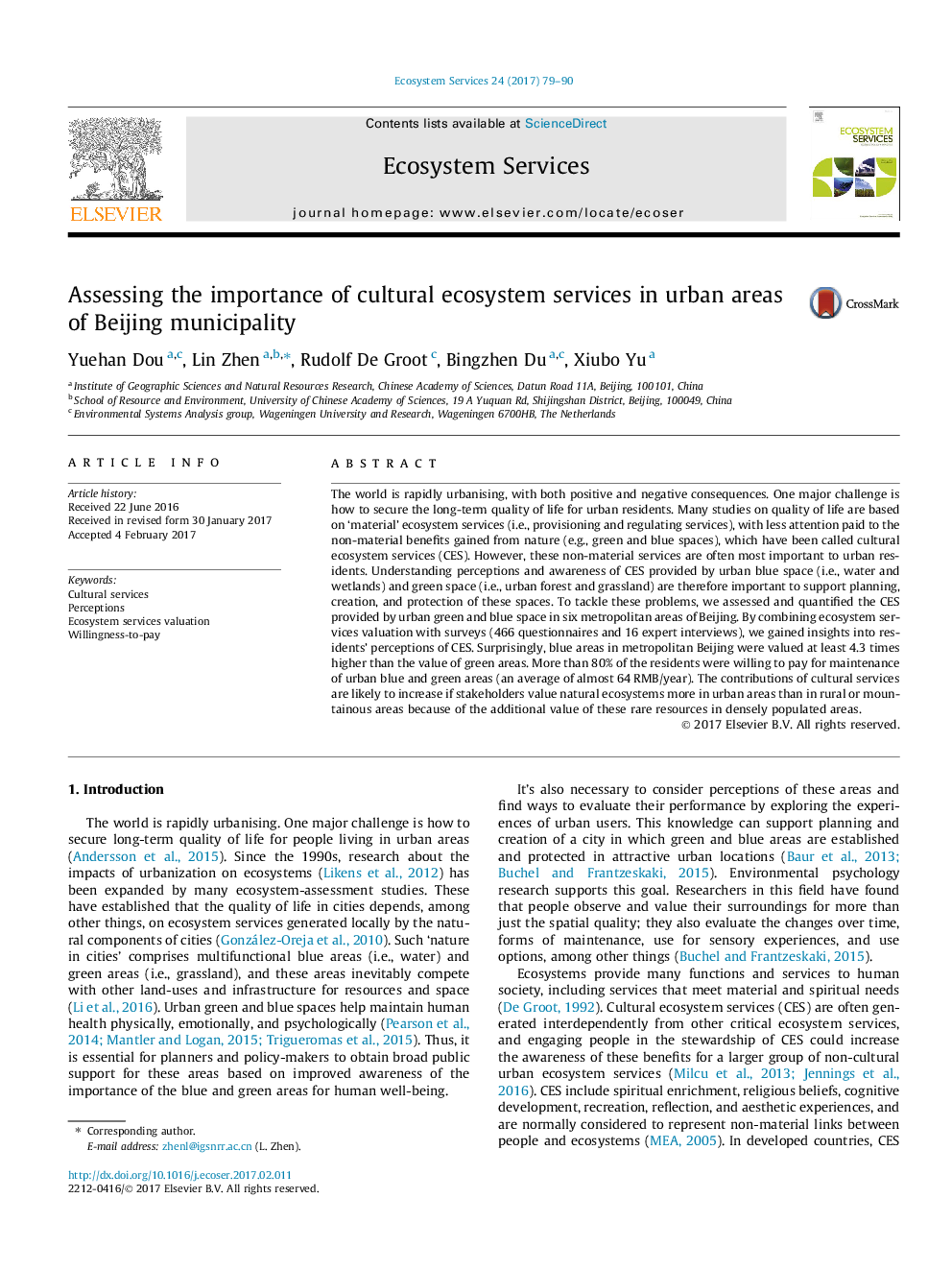ترجمه فارسی عنوان مقاله
ارزیابی اهمیت خدمات اکوسیستم فرهنگی در مناطق شهری شهرداری پکن
عنوان انگلیسی
Assessing the importance of cultural ecosystem services in urban areas of Beijing municipality
| کد مقاله | سال انتشار | تعداد صفحات مقاله انگلیسی |
|---|---|---|
| 150109 | 2017 | 12 صفحه PDF |
منبع

Publisher : Elsevier - Science Direct (الزویر - ساینس دایرکت)
Journal : Ecosystem Services, Volume 24, April 2017, Pages 79-90
ترجمه کلمات کلیدی
خدمات فرهنگی، ادراکات، ارزیابی خدمات اکوسیستم، تمایل به پرداخت،
کلمات کلیدی انگلیسی
Cultural services; Perceptions; Ecosystem services valuation; Willingness-to-pay;

